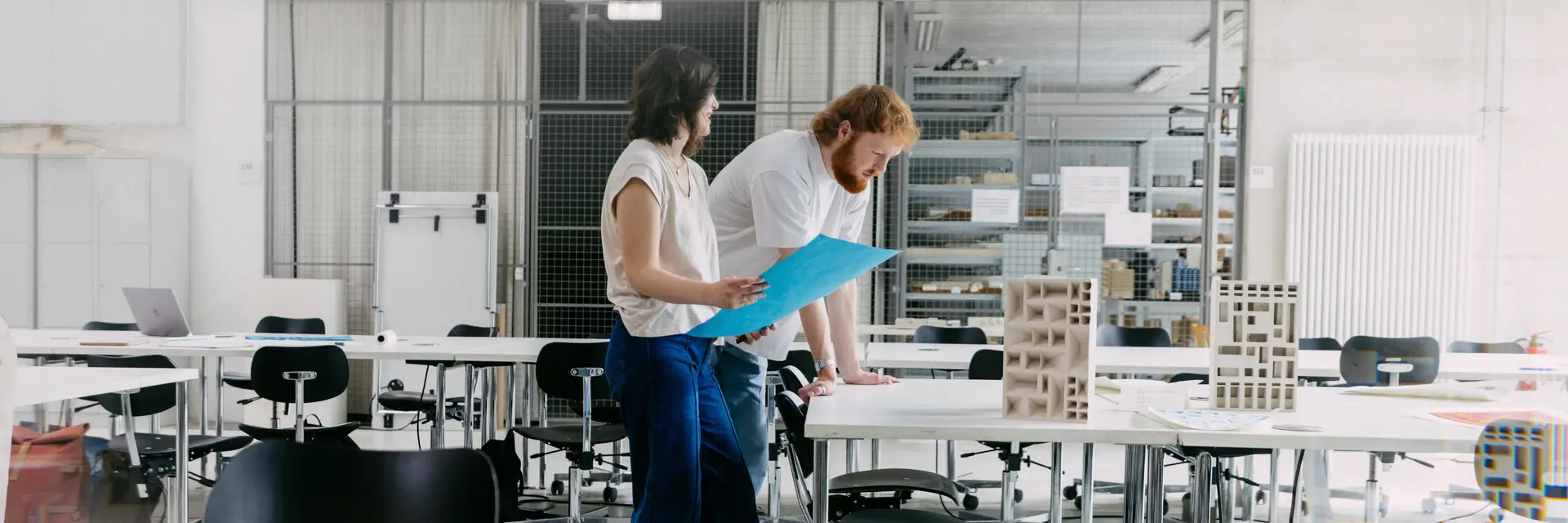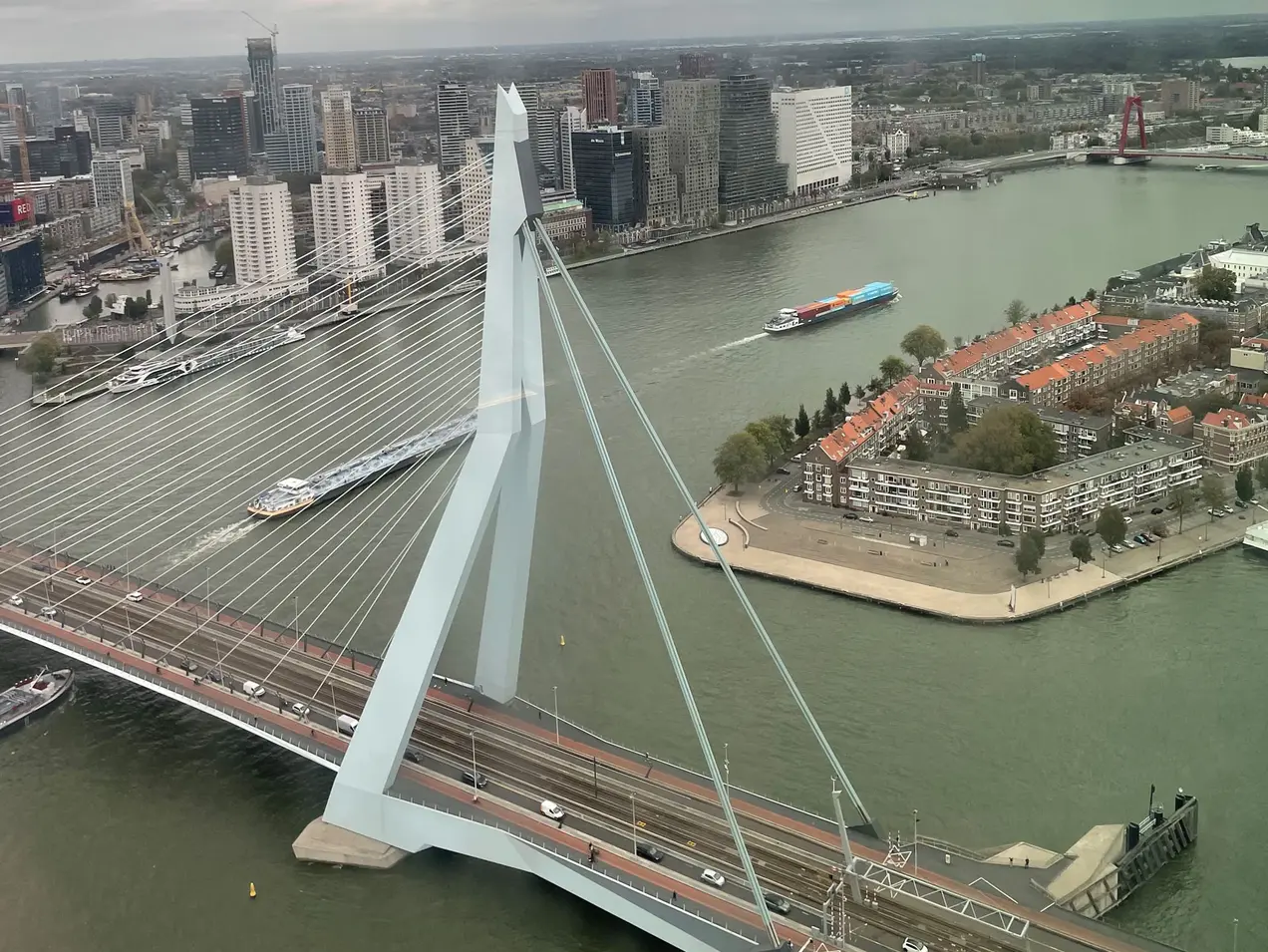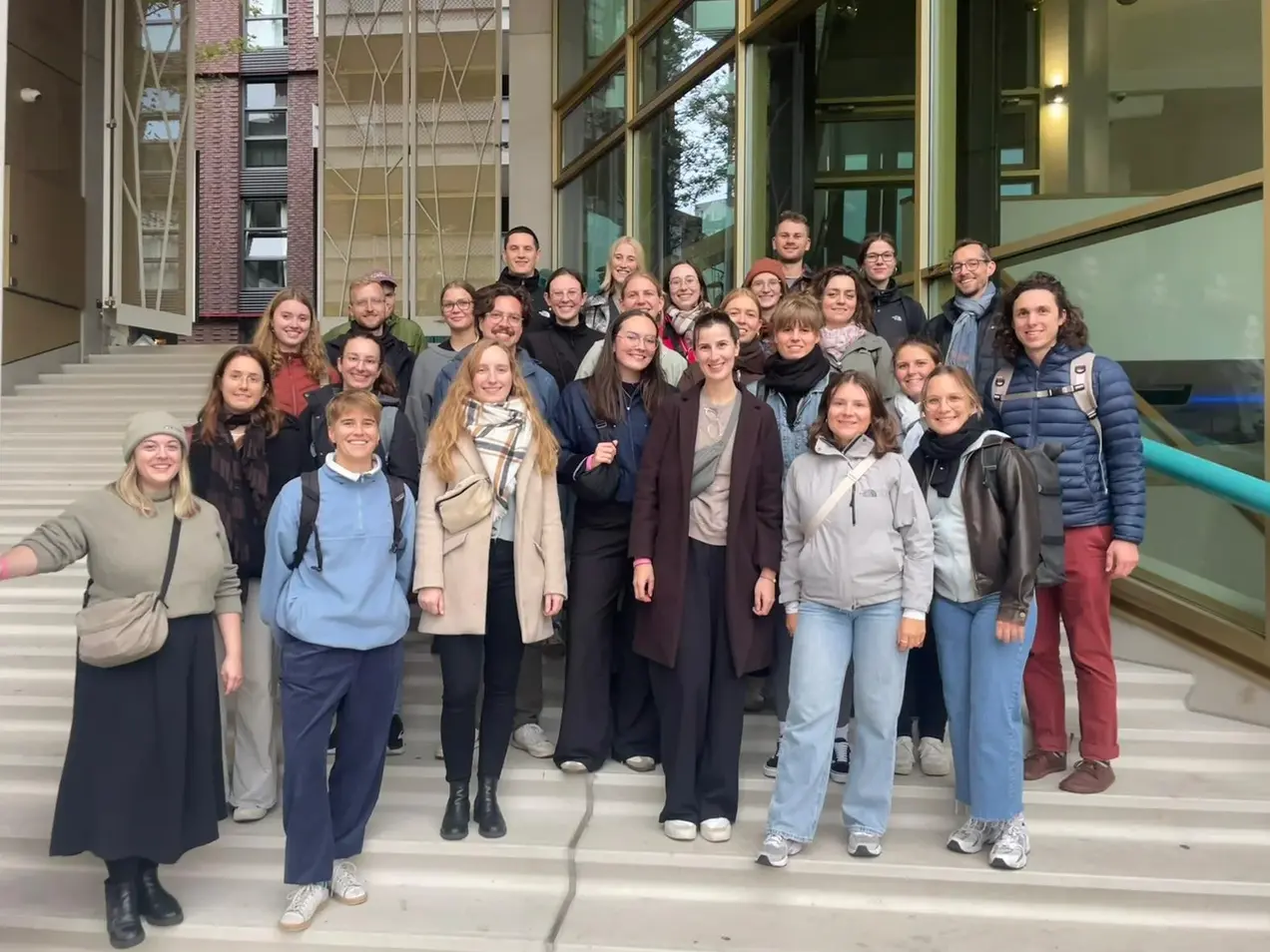In October, 25 students and four teaching staff from the "Environmental Management and Urban Planning in Metropolitan Areas" master's degree program went on a five-day excursion to Rotterdam. This offered the students the opportunity to deepen what they had learned in theory during their studies through direct insights and encounters on site and to experience the challenges of modern urban development. The organizing team designed a varied program that was thematically aligned with the content of the degree program - urban planning, traffic and water management, circular economy and landscape architecture. In addition to the external specialist lectures, the students also presented their own topic-related lectures in groups of two.
Mobility strategies and urban development at the Rijnhaven
The excursion began early on Monday afternoon with the first three student presentations. We then visited Rotterdam City Council, where an exciting presentation on transport planning gave us an insight into the city's mobility strategies. Afterwards, a walk with Prof. Markus Kaltenbach took us along the Rijnhaven, across the Wilhelminapier to Katendrecht - an area that shows the transformation of Rotterdam between port industry and modern urban development in a particularly impressive way.
Port, universities and shared mobility
Tuesday started with three exciting presentations on urban development in the Netherlands, high-speed cycle connections in the country and the port of Rotterdam - one of the largest ports in the world and the largest deep-water port in Europe. We were then able to experience the sheer scale of the 42-kilometer-long port up close on a boat tour of the port. For the next item on the day's agenda, we continued by train to the beautiful student city of Delft, where we attended a lecture on public transport and shared mobility in the Netherlands at one of the country's most renowned universities. Back in Rotterdam, we ended the evening in the port city's architecturally impressive market hall.
Circular economy and sustainable Architecture
Wednesday focused on the circular economy and began with a visit to BlueCity, a former swimming pool that has been transformed into a platform for sustainable companies and innovative projects related to the circular economy and resource conservation. We then visited the architecture firm City Förster and were given an interactive presentation by the managing partner at the Rotterdam location, Martin Sobota, with insights into various current projects that place a special focus on resource- and recycling-friendly construction. The last item on the program was a visit to the Floating Farm, a pilot project by Peter van Wingerden, which promotes the transition to sustainable, resilient urban development under the guiding principle of 'transfarmation' and enables food production close to the consumer. The farm is the first floating farm that conserves resources in the middle of the city and adapts flexibly to rising sea levels.
Water infrastructure and leisure by the sea
On Thursday, the day began at Watersquare Benthemplein, where we heard the first student presentations of the day. As this park, which stores rainwater, was the subject of several of the presentations, this choice of location was particularly appropriate. In the morning, we then visited the Maeslant Barrage, which protects Rotterdam from storm surges with its huge barrage gates. Many of us used the free afternoon to visit the sea, walk along the beach or even jump into the 15 degree water. We rounded off our last evening together in the food hall of the former Bergweg train station.
Final tour through Rotterdam by bike
On the last day of the excursion, we explored Rotterdam on two wheels. During a two-hour bike tour, we gained interesting insights into the many facets of the city - from iconic architecture to important museums and newly designed public spaces. The tour provided a lively conclusion to the week and once again made it clear how versatile Rotterdam is as a city between tradition and innovation.
In conclusion, the excursion impressively showed how diverse and innovative the approaches in Rotterdam are to designing sustainable, resilient and liveable cities. We took away valuable impulses for our further studies and our future professional practice in environmental management and urban planning.


